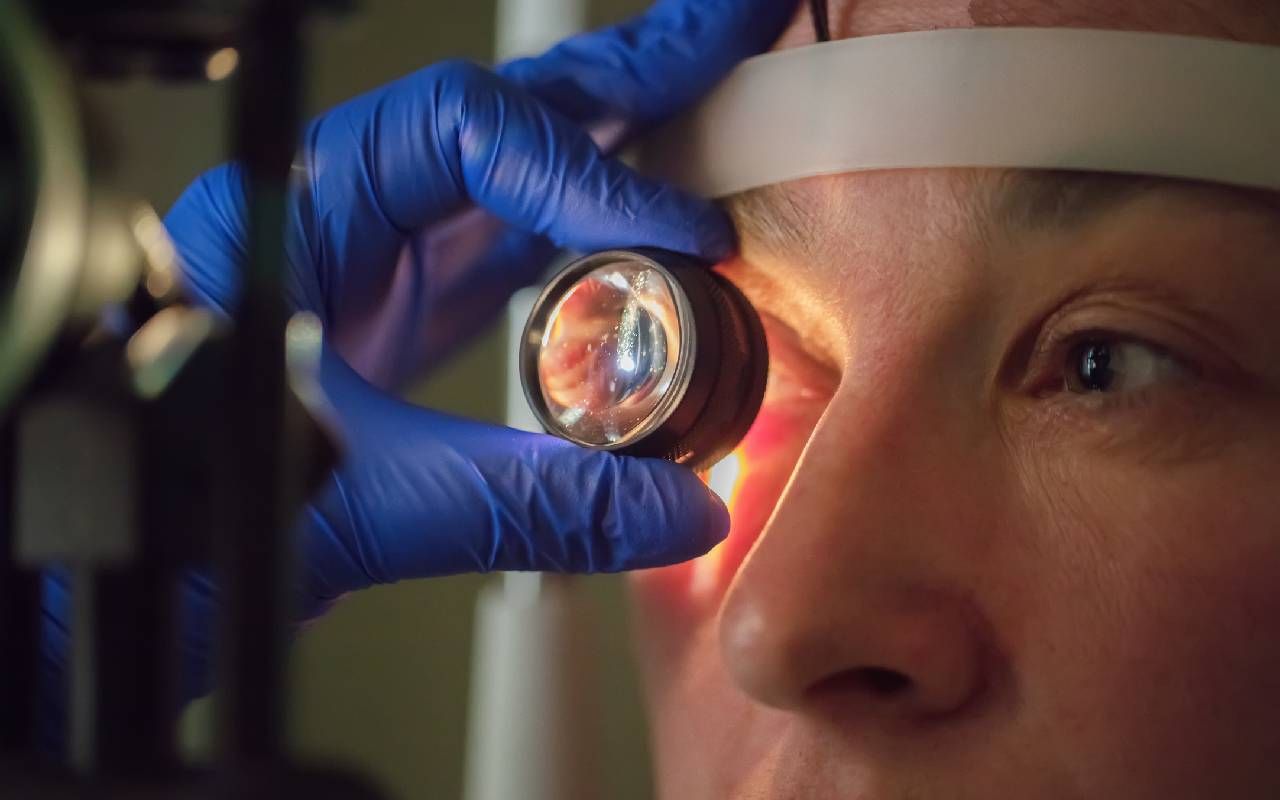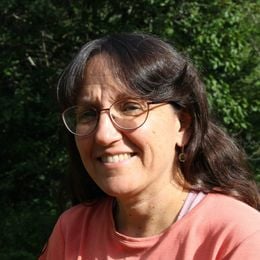Reframing the Waiting for Cataract Surgery
Once I learned to accept my situation with cataracts, it was easier to do a reality check and make adjustments along the way
In April 2022, I had surgery for a retinal detachment. As a result, I developed cataracts in both eyes. These were detected by a specialist in June 2023, but unlike my emergency retina surgery, which the doctor performed the day after my diagnosis, my cataract surgery would have to wait.

Cataract surgery is among the most common surgeries ophthalmologists perform, and my doctor was booking a couple of months out. We scheduled my surgeries for September 7 and 21— first the right eye and then the left.
I knew there were people with much worse diagnoses than mine, but I still grieved my failing eyesight.
Although some people live with cataracts for years without it drastically affecting their lives, my vision declined rapidly, and this impacted many key areas: my job, driving and reading. Due to the discrepancy in my vision in my right and left eye, my eye doctor would not prescribe new glasses until after my cataracts were corrected.
Other than reading glasses for close work, I would no longer need glasses after the surgery. The waiting proved challenging for me. During that time, I developed coping strategies.
Acceptance of a New Normal
Although my situation was temporary, my vision would most likely be near perfect after cataract surgery. I knew there were people with much worse diagnoses than mine, but I still grieved my failing eyesight.
It was still a loss and a definite change from my status quo. The emotions were more overwhelming sometimes than others, and I knew I entered a valley I couldn't avoid. The only way through it was through it. It was up to me how I would live in that space.
Reflecting now, I probably went through the five stages of grief on my way to the final stage –acceptance, although I don't remember spending much time in the first three – denial, anger, bargaining.
Over time, I got used to telling others (and myself) when I couldn't see something.
The first stage for me was not precisely denial. It was more like a shock when my eye doctor told me I had a detached retina and would need emergency surgery or risk going blind. Then again, it wasn't a complete surprise. I'd been seeing flashes and an increase in floaters and had been unable to focus my eyes for a week. I knew something was wrong.
When the retina specialist told me I'd most definitely develop cataracts after the surgery, it was a secondary concern. I all but brushed it off. It was better than losing my sight altogether.
Once the cataracts began, my vision became increasingly blurry. Over time, I got used to telling others (and myself) when I couldn't see something. I had to set some of my pride aside, but I learned there was freedom in that. If I couldn't do something I'd done in the past, I either wouldn't do it or adjust to a new way.
Reality Check
Once I learned to accept my situation, it was easier to do a reality check. One of the more severe realities I had to face was that I would no longer be driving. I hadn't driven on the highway since the day I learned I had a detached retina. No one told me I couldn't.
I decided to feel whatever it was I was feeling. I would be gentle with myself.
I was told a person could legally drive with one eye. I made the decision myself when I realized my blind spot over my right shoulder was a blind spot. My peripheral vision in my right eye was terrible. I could not safely pass a car. My depth perception worsened – something that could be fatal at highway speeds.
Then, in June 2023, I decided to stop driving altogether when I realized I was no longer able to distinguish a person on the side of the road. Again, no one forbade me from moving. But if I hit someone, it was going to be my fault. The risk was too significant.
Permission to Feel
It was the first summer in years I didn't begin with a to-do list that included house painting, home improvement and achieving a perfectly manicured lawn. My to-do lists were shorter than they used to be. Some days, I'd even rip them up.
My goal was to get through the interim and not be completely miserable. This was when I went through the fourth phase of grief – depression. For a few weeks, I didn't do much of anything. I was sad because I couldn't see well, and it was only going to get worse.
I decided to feel whatever it was I was feeling. I would be gentle with myself. Some days, I moped. Some days, I cried. Some days, I started ready to clean the whole house, only to clock out after lunch and take a nap. I changed my mindset and saw it not as a cop-out but as a way of practicing self-care.
I savored warm sunshine, hot showers and sleep. I wrote in my journal (or made voice notes on my phone when I got tired of using one eye to focus on the words). I treated myself to ice cream after doctors' appointments. I took solace in my garden and the company of family and friends. It became a hygge summer.
Take A Personal Inventory
I decided to focus on the things I could still do. I could still make my famous chocolate cake and host family birthday parties. I could chat with people over the phone or on my back deck.
Making adjustments can be empowering.
I could be an active listener and offer comfort. I could still attend my women's group at church. I just needed someone to drive me there. Even when I couldn't drive, I could shop online. I could have groceries delivered. I could ask people for help. I also prepared for my upcoming surgery and recovery time.
I knew I would not be able to lift over twenty pounds, bend over or exert myself for a week after each surgery as my eyes healed. While I waited, I would play Frisbee with the dog, mow the lawn (even if I couldn't see the lines too well), wash the bed sheets and polish my cooking pots. Doing these things gave me a sense of control over my situation.
On Hobbies
I've always loved to read, especially before bed. But reading became more difficult. If I was interested enough in the book, I could float my eyes over the words and ignore that they were not in focus. Other times, though, it just made me weary.
Reading was the hobby that helped me escape my troubles, but it became the pastime that drew more attention to them. I needed to find a way to read without looking at the page. Recorded books were the answer.
While I had to lie prone and not read for ten days after my retina surgery, I listened to "I Capture the Castle" by Dodie Smith. While awaiting cataract surgery, I discovered Librivox.com. The recorded books there introduced me to British horticulturist Gertrude Jekyll. Her book, "Wood and Garden," appealed to my love of gardening.
When I told my friend I'd decided not to drive anymore, she was proud of me for taking that power over my circumstances.
I also found common ground in Jekyll as she, too, had failing eyesight later in life. I may not have discovered this kindred spirit had I not needed to find a new way to explore books.
We practice a growth mindset to prove our brain's neuroplasticity when we add new hobbies or methods to our repertoire. Making adjustments can be empowering. When I told my friend I'd decided not to drive anymore, she was proud of me for taking that power over my circumstances.
Her words made me cry. I hadn't thought of it that way. When we make adjustments to our lives so we can function better in our different states of circumstances, we refuse to become victims of our situation.
The coping strategies I learned turned out to be gifts to myself. Where I began the summer focusing on the things I could no longer do, by September, I was paying more attention to the things I could do, the ways I was adjusting to do more and the addition of new interests.
I found I'd accepted my circumstances; I was thriving in them, developing grit. I would not only survive this trial, I would grow. Even though no one wants grit in their eyes, it sure comes in handy in our lives.


